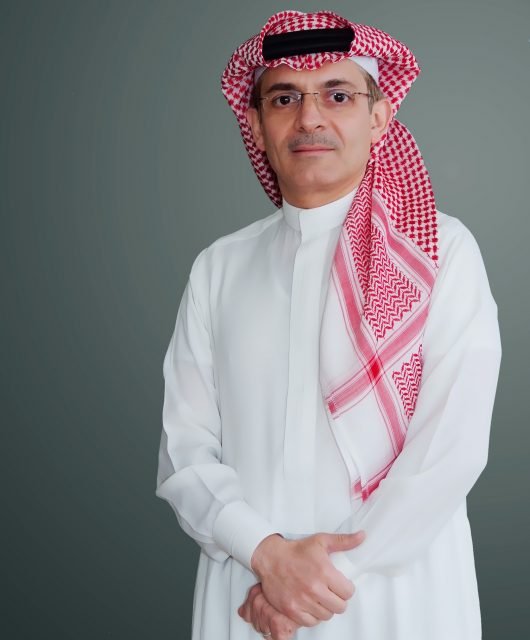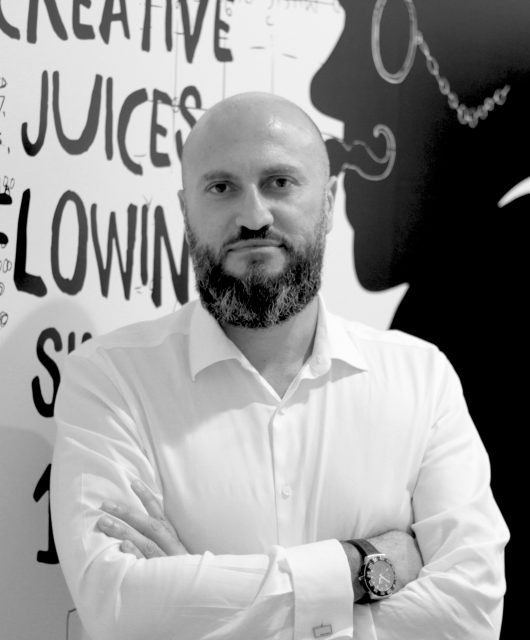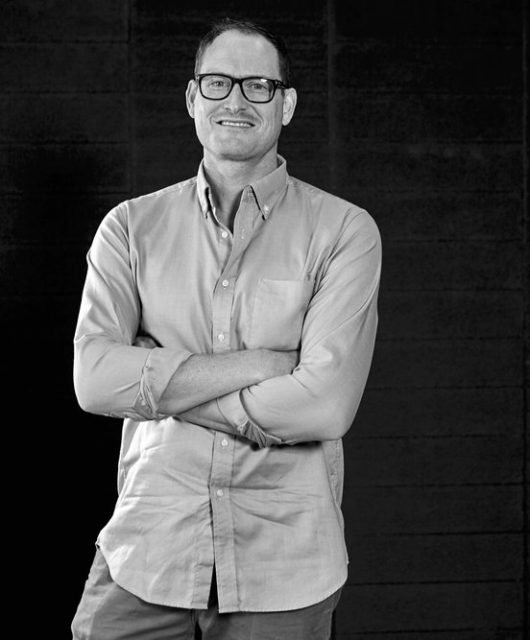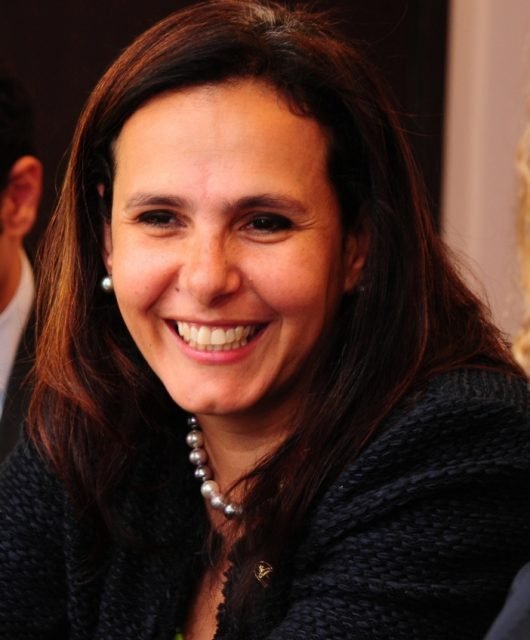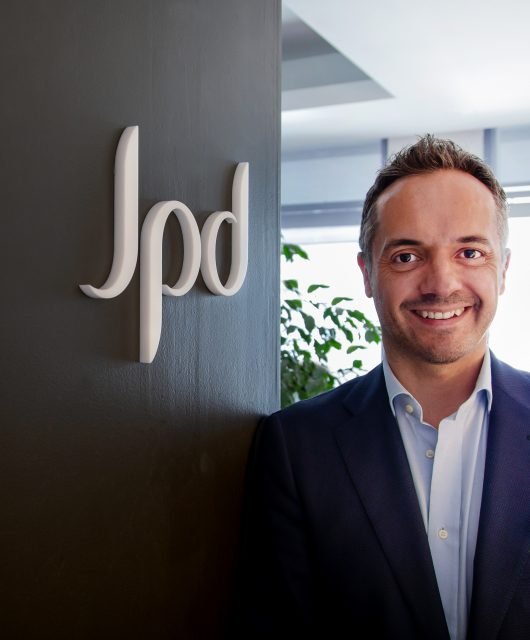The Branders: Q&A With The Brand Company’s Omar Hikal
In the age of disruption, nothing is safe from profound change. With fast-paced emerging trends, such as the rise of millennials, interactive storytelling and the digital renaissance, brand strategists find themselves quantum leaping to recalibrate the DNA of brand strategies and how they’re being crafted. The Berries interviewed Omar Hikal, CEO and Head of Strategy at The Brand Company , to get his insights on how can brands strategically incorporate a forward-thinking model into their strategies.
BB: One of the controversial theories in consumer psychology is that the abundance of choices is over-appealing. Offering shoppers fewer choices results in increased sales and an overload of choices result in decision fatigue. Same goes for brands; limiting the determinant factors behind the brand positioning is more than half the battle as too many factors weakens the result. What’s your take on this ?

OH: Choice is a big brand trap. Brands assume that offering the customer choice is the key to gaining shares and increasing revenues. The reality is that, often, the key to building strong brands is all about limiting choice and having a laser sharp focus on a very unique proposition that even a small group can be absolutely fanatical about. Just look at the iPhone vs. Samsung’s 5000 models. Sadly, Apple is now getting dragged into the choice game and I don’t think that this will be good for their brand in the medium term. They have the advantage of a massively strong brand and an ecosystem that makes switching somewhat of a burden, but I wouldn’t recommend choice as a long term brand strategy.
The other important issue is that offering consumers choice is an expensive proposition. The operational and financial implications of offering so many options cannot be overlooked – especially when often the reality is that 1+1 = .75
Smart brands figure out a way to make their customers feel that they have just the right amount of choice (not enough to make life confusing) and managing that choice operationally in a manner that is efficient and streamlined.
BB: As our lives become increasingly digital, it makes more sense for brands to adopt a digitally-focused approach. However, although our world is moving towards “digital- focused” brands, others are still skeptical about its ROI. How should a brand decide on when to focus its efforts on a digital-first approach ?
OH: I am not sure there is any such thing as a “digital first” approach. Digital is a part of our lives. Your audience is online – and that’s going to be where you need to go to meet them. There’s far too much focus on the medium and not enough concentration on the message. Strategic branding is all about telling a story to your customers and prospects in a way that is compelling, authentic, but most of all it must connect with them at a profound level. Naturally if the most effective way to communicate your message is going to be using digital media, then that’s where you need to be.
There are, however, brands that only exist because of the internet, mobile computing and that entire ecosystem. Those brands, by definition, are going to be digital-focused because that’s the world they exist in. The best brands are “digilog” in that they are navigating the digital and analog worlds with mastery. Every human experience is ultimately analog. When you order something from Amazon you don’t care that it’s a “digital” experience. You’re waiting for a box to show up in the mail. Or you are streaming a movie on your Amazon Fire Stick that ultimately will show up as an analog image reflecting on your retina. When you take an Uber, an actual car and driver (both analog) show up.
Learn to leverage digital to create amazing analog experiences for your customers.
BB: Millennials are the fast-becoming dominant consumer base, and in some categories, they’re the only consumer base. Brands have to adapt to them or go out of fashion. In your opinion, how can brands remain relevant in the millennial era ?
OH: Millennials are a unique bunch. Generation X was unique. The baby-boomers were unique. Ancient Egyptians were unique. Not only were they unique as groups, but each member of those groups was also unique. That’s the nature of our human existence. Consumers are people and each one of us fits within certain groups and affiliations. Good brands leverage those affiliations. The great brands BECOME those affiliations (think of religious brands and football clubs).
Brand professionals obsess about the demographics and psychographics of their audience. We assume that all Millennials are the same. Sure, there are common threads that we can build on. Millennials seem to be more anxious than other generations. They are digital natives so technology is absolutely second nature for them. They don’t seem to have the rebellious nature of previous generations.
In reality, however, we as brand professionals need to look at the demographics and psychographics of our audience in addition to the actual circumstance that creates an ideal opportunity for us to connect with them at a visceral level. Is this the same for all Millennials all over the world? Definitely not. Does a Millennial in Islamabad have more in common with a millennial in Rio de Janeiro than she does with her mother? Perhaps. But for us to be able to make intelligent brand decisions we’d need to know a lot more about her than just her age.
BB: The year 2017 has witnessed the launch of your company “The Brand Company”. Furthermore, it has witnessed the expansion move into an office in London. What’s your ambition for The Brand Company in 2018 ?
OH: Our ambition is always to do great work for amazing client-partners. We are currently deep into a number of wonderful projects that will come to light in 2018 and that’s seriously exciting for us. Our offerings and our methodology have been very well received in 2017 and we are constantly updating and elevating our ability to help brands grow and prosper in increasingly competitive environments.
We are also looking to expand into regional markets by focusing and building our capacity and constantly raising our standards. Our London team will play a big role in that and we anticipate establishing a presence in at least one more country in 2018. While the norm is to look East to the GCC we are very keen on exploring opportunities to the West (North Africa) and South.
BB: The world is evolving in an ultra-dynamic pace, product features are becoming something of the past and brand experience is the “in” of tomorrow. In your opinion, should all brands abandon a product commoditization strategy and embrace the experience strategy? Please elaborate
OH: In our Brand Strategy framework, the Brand M.A.P, we focus at least a third of our time and efforts on the “P” which is the promise of the brand. How brands keep their promise to their core customer is absolutely critical – and this is not a new thing at all. I wouldn’t say it’s a fad that will change. Brands are all about emotional, visceral and self-expressive benefits. They always have been. Commodities are the opposite of brands.
BB: The rise of brands such as Apple and Nike, has redirected the world towards the potential power of interactive storytelling, and its effect on consumer emotional engagement. Can you give some takeaways for brands in the Middle East on how to master storytelling ?
OH: What a great question.
Storytelling is the essence of building strong brands. As marketers and branders we are constantly telling stories – and the consumer is also telling himself/herself stories as well. Let’s talk about some brands that are making strong marks on our markets regionally.
Take a look at Azza Fahmy. Here’s a brand that has managed to articulate an amazing story of authenticity, style and cultural reconnection. Azza Fahmy have leveraged their heritage and unique designs to create a brand that has a compelling story; a story of pride and of identity that resonates very strongly. How many local brands have started to flourish now on the path that Azza Fahmy has charted?
How has Emirates become one of the world’s most successful airlines? They are master storytellers and master creators of experience. Emirates is telling a story of optimism. A story that builds on the amazing growth of Dubai and also contributes to that story. The bonus for Emirates is that they tell their story with impeccable attention to detail and a tremendous amount of focus on customer experience.
One of our favorite client-partners is Hyper One, Egypt’s massive food-retail pioneer. Here’s a brand that is in a very un-sexy space. They don’t invest a lot in shiny marketing and gimmicky promotional stuff. They have created a story that comes from an authentic sense of purpose that their visionary founder has infused throughout their business. The customer’s welfare is their top priority. That ethos is felt in all that they do, from pricing strategy, to quality control to their obsessive customer service. The story is simple, compelling, and most of all, authentic. Hyper One shoppers are intensely loyal and have a very strong connection to the brand at a visceral level. This is because they feel genuinely cared for and know that Hyper One will help them live better while spending less.
The best stories are real. We are working with a GCC entrepreneur that is developing an amazing app-based health care platform that will revolutionize the way we care for our own health and wellness as well as those of the ones we love. He lost his parents early in life to disease and is determined to make people live healthier lives and to be able to care for families and loved ones with ease and convenience and to help us all remain vital and live longer. That’s a great story. We didn’t make it up. All we have to do is to ensure that it is articulated and activated in a way that is really strong.
BB: In a profound shift to the way brands are managed, the world has recently witnessed the rise of ‘Brand Community’ model. With brands such as Air BnB and Uber, Communities can be product developers, market makers and content creators too. How can brands of the Middle East best leverage community building?
OH: We have a lot of work to do here. Our societies are full of under-utlized assets – human and physical. The sharing economy presents some very cool opportunities for us. We recently made a lunch order at our office in Cairo from “Mumm” which is a food service that allows women in their homes to create meals at home and sell them online. How awesome is that? We have client-partners that are now looking at ways to leverage the millions of skilled women that are staying at home for family or social reasons. Imagine if we could unleash the potential of the female teachers, doctors, scientists who are stay-at-home moms? Why can’t call centers use these women and create virtual networks instead of having to rent expensive real estate and have their operators deal with horrific transportation challenges?
BB: What will Middle East brands have to do to become viable regional or even global brands?
OH: Our region is attracting a ton of attention from global brands for our purchasing power. We are super consumers and that is causing brands like Netflix, Amazon, Google and Facebook to pay particular attention to us. That’s cool, but it isn’t going to help us create strong economies and bright futures.
Strategically, I have no doubt that brand strategies will need to evolve in the coming years. We need to begin to look at capacity building locally, and market development abroad. Countries like Egypt have a unique opportunity now to increase export-based manufacturing while also profiting from the premiums that come along with superior strategic branding. Look at the amazing brands that are thriving locally like Carina or Cottonil in textiles. With the right strategies these brands could become regional powerhouses and could create thousands of jobs and bring in millions in much needed foreign currency. I have a long list of companies that I believe improve their performance drastically with a more strategic approach to their brand.
So, back to your original question. I think that the bottom line is that ultimately, brand strategy is not enough. Companies must adopt a brand culture. Everything that a company does impact the brand. Hiring, procurement, invoicing, and customer service, are all affecting companies’ brands. Renowned management guru Peter Drucker famously said “culture eats strategy for breakfast.” Create a brand culture and you will be way ahead of the game.
To me, that’s really the paradigm shift that brands in this region need.

